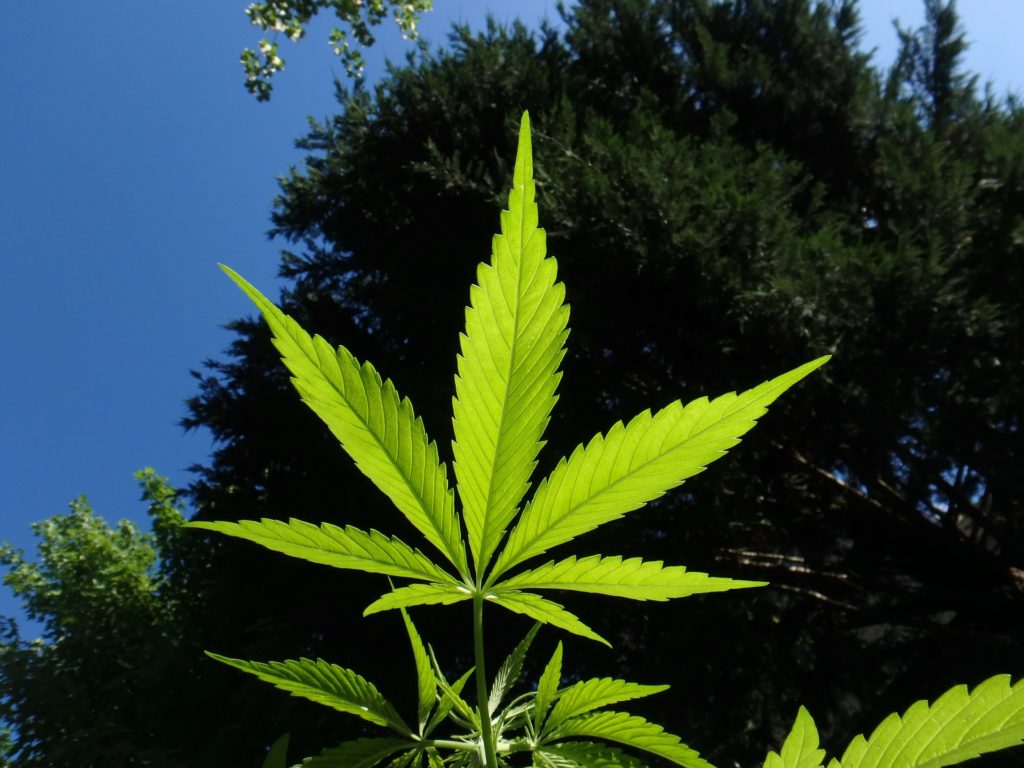 It’s well-known that the cannabis being smoked today is significantly more potent than the weed that was floating around at Woodstock and other famous festivals of days gone by. But what does this really mean for today’s users? In this article, we’ll explain just why marijuana is stronger than ever, the short and long-term effects that can have, and why a non-intoxicating part of the plant, cannabidiol (CBD), may improve your cannabis experience.
It’s well-known that the cannabis being smoked today is significantly more potent than the weed that was floating around at Woodstock and other famous festivals of days gone by. But what does this really mean for today’s users? In this article, we’ll explain just why marijuana is stronger than ever, the short and long-term effects that can have, and why a non-intoxicating part of the plant, cannabidiol (CBD), may improve your cannabis experience.
Table of Contents
Powerful pot
Humans may have become acclimated with cannabis thousands of years ago, but it was only in the mid-20th century that we started to get a chemical understanding of the plant. One of the key early discoveries was the existence of cannabinoids, and notably delta-9-tetrahydrocannabinol (THC), which is responsible for most of the herb’s psychoactive effects. That the ‘high’ from marijuana is contained to just a couple of the 400 or more compounds in the plant has allowed cultivators to genetically engineer weed to make it more potent.
The result is a rapid increase of THC levels and a sharp decline of CBD levels in strains. Walk into any dispensary throughout the United States, and strains with 20 percent THC and less than 1 percent CBD dominate the shelves. What’s more, these strains are classed as better quality, because they generate a stronger ‘high’. For cannabis users, this makes for a more powerful experience, with heightened THC percentages boosting the euphoric and psychoactive effects. And that’s without considering concentrates and dabs, which are often three or four times more potent than even the strongest marijuana flower.
The manipulation of THC and CBD in cannabis goes against the conventional wisdom that cannabis is safe because it’s a “natural plant”. While it may look the same as ever, it’s chemically incomparable to 50 years ago. For that reason, we must question the long-term effect that sustained consumption of high strength weed has on the body, and particularly the brain.
Cannabinoids and the hippocampus
The hippocampus is a key component of the human brain that is part of the temporal lobe. This brain region is involved with learning, motivation and emotions, and is crucial for the formation of short and long-term memories. Many parts of the brain express cannabinoid receptors, but there is perhaps no area more interesting than the hippocampus.
A key criticism of heavy cannabis users is that they become lazy, demotivated and – in some cases – experience memory loss. This has been seized upon and dismissed by cannabis critics and advocates alike. But neuroscientific research on the effect of cannabinoids on the hippocampus has shed necessary light on this area.
It seems that THC and CBD react very differently in this section of the brain. A 2013 meta-analytical review featured in the Psychiatry and Clinical Neurosciences journal revealed that chronic and long-term cannabis consumption “may exert significant effects in brain areas enriched with cannabinoid receptors”. This could have a “neurotoxic” effect on, say, the hippocampus.
In contrast, a 2015 animal study looking at two cannabinoids, CBD and cannabichromene (CBC) showed that these non-intoxicating compounds have a neuroprotective effect and promote neurogenesis in the hippocampus. Therefore, we have cannabinoids that encourage hippocampal growth, and THC which causes hippocampal degradation.
Given that strains have become so dominant in THC and so low in CBD, this is a real cause for concern. Could it be that recent cannabinoid changes by cultivators have disrupted marijuana’s natural actions on the brain, making it harmful in the process? More traditional strains where the CBD and THC are present in more level concentrations certainly have a more balancing – and likely more sustainable – effect on the brain.
Taking CBD may reverse long-term cannabis issues
But just as long-term administration of THC may be damaging, extended CBD treatment may have a reverse, healing effect. And this isn’t just speculation. The idea that CBD products can improve hippocampal health in chronic cannabis users was demonstrated in a study published by Cannabis and Cannabinoid Research in 2018.
The small investigation showed that CBD could spur regrow the hippocampus in people who had suffered the effects of THC’s neurotoxicity. Moreover, CBD’s benefits were more pronounced in those who had experienced the most significant structural loss. This study has whetted the appetite for more research, ideally involving more participants, varying dosages and extracts made up of different cannabinoids, such as CBD and CBC, and perhaps others.
For the regular marijuana user, this study should provide food for thought. Taking wholesale CBD products could be a no-brainer to preserving neurological health over years and decades.


